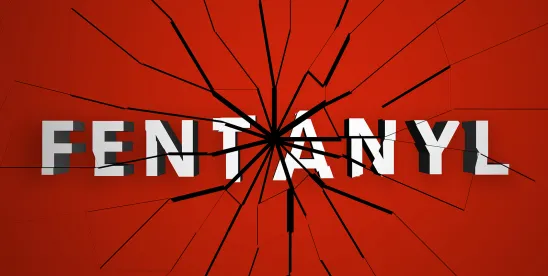In a historic move that signals a new era in the fight against illicit opioid trafficking and money laundering, the U.S. Department of the Treasury’s Financial Crimes Enforcement Network (FinCEN) has issued its first-ever orders under the newly enacted Section 2313a of the Fentanyl Sanctions Act, as amended by the FEND Off Fentanyl Act. These orders, published in June 2025, target three Mexico-based financial institutions — CIBanco S.A., Intercam Banco S.A., and Vector Casa de Bolsa, S.A. de C.V. — and impose sweeping prohibitions on U.S. financial institutions’ ability to transact with them.
For U.S. banks and other covered financial institutions, these orders represent the latest salvo in the Trump administration’s reliance on financial crime regulations to advance its war against Mexican cartels. The orders represent FinCEN’s first use of new statutory authority and open a new front of Bank Secrecy Act (BSA) and anti-money laundering (AML) compliance, with direct implications for risk management, operational processes, and regulatory exposure. For more on how the Trump administration’s focus on Mexican cartels is impacting the U.S. financial sector, please refer to our recent blog posts on the administration’s designation of cartels as foreign terrorist organizations and the latest FinCEN guidance on trends in oil smuggling and money laundering.
What Do the 2313a Orders Say?
FinCEN’s orders, issued on June 25, 2025, designate CIBanco, Intercam, and Vector as “financial institutions of primary money laundering concern” in connection with illicit opioid trafficking, specifically fentanyl. The orders assess the impact the prohibitions may have on the industry, citing the respective asset sizes of the two banks and the brokerage firm. According to FinCEN’s data, both CIBanco and Intercam reported approximately $7 billion and $4 billion in assets at the end of 2024, while Vector, a brokerage firm, reported $10.67 billion in assets. Given the relatively small size of the subject financial institutions compared to larger financial institutions in Mexico and any correspondent relationships between U.S. and Mexican institutions, the risk of macroeconomic impacts on the industry is negligible. Regardless of the relatively small size of CIBanco, Intercam, and Vector, the order cites extensive findings that these institutions played “vital roles in facilitating money laundering activities of Mexico-based cartels,” including the processing of payments for precursor chemicals essential to fentanyl production and the laundering of millions of dollars on behalf of notorious drug trafficking organizations such as the Jalisco New Generation Cartel (CJNG), Gulf Cartel, Sinaloa Cartel, and Beltrán-Leyva Organization.
The orders prohibit all “transmittals of funds” involving these institutions by any covered U.S. financial institution. This prohibition is broad, encompassing not only traditional wire transfers and ACH payments but also transactions involving convertible virtual currency. The orders apply to the Mexican parent entities and their branches, subsidiaries, and offices located in Mexico, but expressly exclude any branches or subsidiaries operating outside of Mexico, including those in the United States.
The orders become effective 21 days after publication in the Federal Register, providing a short window for U.S. financial institutions to adapt their compliance programs and operational processes. There is no set expiration date for these orders — they remain in effect indefinitely unless modified or rescinded by FinCEN.
Why Are These Orders Novel?
The 2313a orders are unprecedented in several key respects:
1. First Use of New Statutory Authority
These are the first actions taken under Section 2313a, a provision added to U.S. law by the FEND Off Fentanyl Act in April 2024. Unlike the older Section 311 of the USA PATRIOT Act, which also allows the Treasury to designate foreign financial institutions as primary money laundering concerns, Section 2313a is specifically focused on money laundering related to illicit opioid trafficking. It grants FinCEN the power to impose a broader set of “special measures,” including outright prohibitions on transmittals of funds, and to do so via order rather than the slower, more cumbersome rulemaking process.
2. Immediate and Sweeping Prohibitions
The orders do not merely require enhanced due diligence or recordkeeping — they impose a blanket ban on all transmittals of funds to or from the designated institutions. This is a far more aggressive approach than previous measures, effectively severing the targeted Mexican banks from the U.S. financial system and, by extension, from much of the global financial system that relies on U.S. dollar clearing.
3. Direct Response to Cartel-Linked Terrorism
The timing and scope of these orders reflect the Trump administration’s intensified focus on Mexican cartel activity. In early 2025, several major cartels were designated as foreign terrorist organizations (FTOs) and specially designated global terrorists (SDGTs), further raising the stakes for any financial institution found to be facilitating their operations. The 2313a orders are a direct response to this policy priority, aiming to disrupt the financial networks that enable cartels to traffic fentanyl and other deadly narcotics into the United States.
What Does This Mean for U.S. Banks and Financial Institutions?
For U.S. banks, broker-dealers, money services businesses, and other covered financial institutions, the 2313a orders are a clarion call to action. The compliance implications are immediate and significant:
1. Cease All Prohibited Transactions
By the effective date, covered financial institutions must halt any and all transmittals of funds to or from CIBanco, Intercam, or Vector, as defined in the orders. This includes not only direct transactions but also any indirect exposure through nested correspondent relationships, payment intermediaries, or involvement in financing arrangements the designated institutions may be a party to.
2. Update Screening and Monitoring Protocols
Institutions must promptly update their customer and counterparty screening tools, transaction monitoring systems, and blocking lists — including those for crypto wallets — to identify and prevent any prohibited transactions involving the named Mexican institutions. This may require enhanced due diligence on existing customers, review of correspondent banking relationships, and close scrutiny of cross-border payment flows.
3. Enhance BSA/AML Compliance Programs
The orders require financial institutions to consider the finding of primary money laundering concern when fulfilling their other BSA/AML obligations. This means integrating the new prohibitions into AML/CFT compliance programs, training staff on the new requirements, and ensuring that suspicious activity monitoring are attuned to the risks associated with the designated entities.
4. Penalties for Non-Compliance
The stakes for non-compliance are high. Civil penalties can reach up to twice the value of the prohibited transaction or $1,776,364 per violation (as of June 2025), and willful violations can trigger criminal fines of up to $1 million per transaction. Directors, officers, and employees of financial institutions can also be held personally liable.
5. SAR Filing Considerations
While the orders do not impose new Suspicious Activity Report (SAR) filing requirements, FinCEN recommends that any SARs filed in connection with the designated institutions reference the relevant order. Transactional information, customer details, and any activity involving CIBanco, Intercam, or Vector should be included as appropriate.
6. No Retroactive Application, but Immediate Action Required
The orders do not apply retroactively — only transactions occurring after the effective date are covered. However, the 21-day implementation window is short, and many institutions are already taking steps to ensure compliance ahead of the deadline.
7. Broader Reputational and Legal Risks
Given the linkage of these institutions to cartels now designated as FTOs, U.S. financial institutions face not only regulatory but also reputational and potential counterterrorism law exposure if they fail to comply. The orders send a clear message: The U.S. government is prepared to use every tool at its disposal to disrupt the financial lifelines of drug trafficking organizations.
Conclusion: A New Era of Enforcement and Compliance
FinCEN’s 2313a orders mark a watershed moment in the U.S. government’s campaign against fentanyl trafficking and cartel-driven money laundering. For U.S. banks and financial institutions, the message is clear: Robust, proactive compliance is not optional — it is essential. Moreover, the respective asset sizes of the subject institutions are a clear demonstration of the U.S. government’s focus on financial industry participants of all sizes, not just those with large asset sizes with a global presence. Institutions of all sizes must act swiftly to assess their exposure, update their controls, and ensure that they are not inadvertently facilitating the operations of entities that threaten U.S. national security and public health.
The Trump administration’s focus on Mexican cartel activity, coupled with the expanded powers under the FEND Off Fentanyl Act, means that financial institutions can expect continued scrutiny and aggressive enforcement in this area. Now is the time to review your compliance programs, engage with your risk and legal teams, and ensure that your institution is prepared to meet the challenges of this new regulatory environment. The cost of inaction is simply too high.





 />i
/>i
